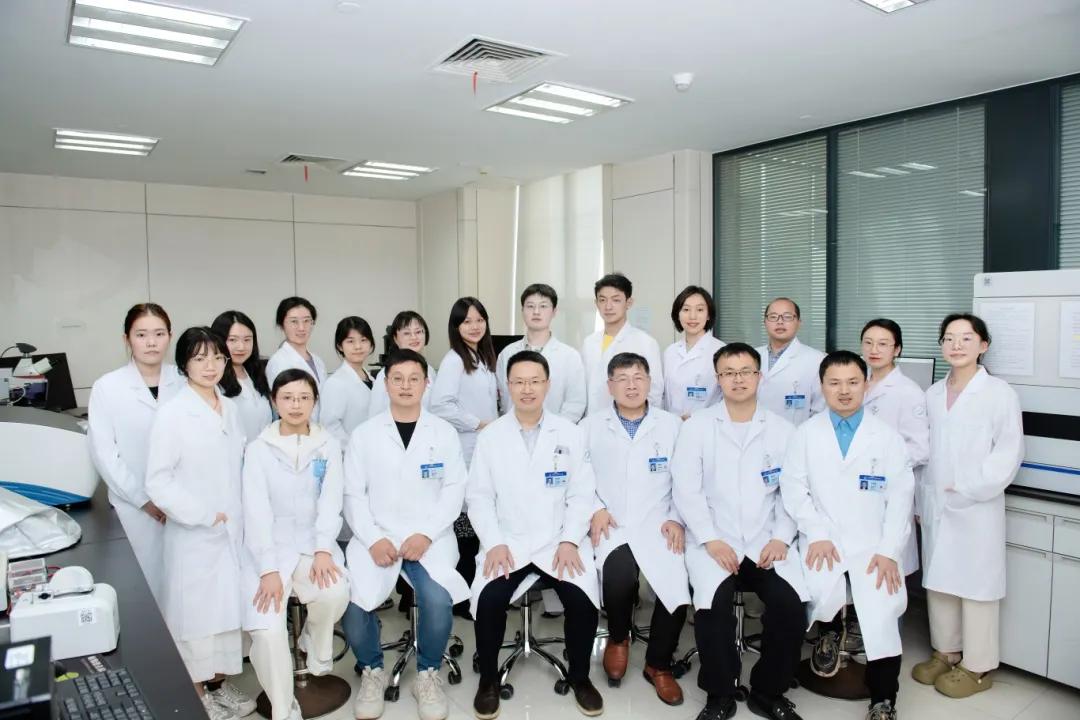With Second-Highest Global Contribution, First Affiliated Hospital of Chongqing Medical University Co‑authors International Expert Consensus on Drug Efficacy Evaluation for Primary Aldosteronism
An international, multicenter research effort that culminated in the development of the Expert Consensus on Drug Efficacy Evaluation for Primary Aldosteronism (PAMO), has been recently published in the leading medical journal, Lancet Diabetes & Endocrinology. This initiative was launched by experts from Ludwig Maximilian University of Munich and co-led by researchers from the Hudson Institute of Medical Research (Australia) and the University of Turin (Italy).
Experts from the Department of Endocrinology at the First Affiliated Hospital of Chongqing Medical University, including Professor LI Qifu, Dr. YANG Shumin, Dr. HU Jinbo, and Dr. SONG Ying, were significant contributors to the consensus development. Their provision of crucial data from Chinese patient cohorts constituted the second-largest global contribution to this international collaborative effort.
Expert Consensus on Drug Efficacy Evaluation for Primary Aldosteronism
Filling a Critical Gap in the Field
Primary aldosteronism is a common subtype of secondary hypertension, with prevalence estimates ranging from 5% to 10% among the general hypertensive population. Projections indicate that among China’s estimated 266 million individuals diagnosed with hypertension, no fewer than 13.3 million are affected by primary aldosteronism.
Depending on the location of the lesion, unilateral primary aldosteronism (accounting for approximately 30% of cases) can be treated surgically, whereas bilateral disease (roughly 60%) primarily relies on medical therapy. However, until now, there has been no standardized methodologies to evaluate drug efficacy, thereby impeding accurate assessment of therapeutic response.
The Expert Consensus on Drug Efficacy Evaluation for Primary Aldosteronism was formulated through a rigorous Delphi process involving 31 leading international specialists in the field of primary aldosteronism. Drawing on extensive clinical data from 1,258 patients treated at 28 medical centers across four continents between 2016 and 2021, this consensus, for the first time, establishes systematic criteria to evaluate both biochemical and clinical outcomes of pharmacological therapy in primary aldosteronism, thereby filling a long-standing gap in clinical practice and research.

Professor LI Qifu’s Research Team
World‑Class Leadership in Primary Aldosteronism Research
As early as 2016, Professor LI Qifu, Director of the Department of Endocrinology at the First Affiliated Hospital of Chongqing Medical University, has spearheaded the establishment of the dedicated, multidisciplinary Chongqing Primary Aldosteronism Research Group. Since its inception, this group has maintained a focused mission to address the complex clinical challenges associated with this condition.

To address these therapeutic challenges, Professor LI Qifu's team conducted pivotal randomized controlled trials (RCTs). These studies provided the first international evidence demonstrating the efficacy and safety profile of the novel mineralocorticoid receptor antagonist finerenone in the treatment of primary aldosteronism. This work provided crucial evidence to support the assessment of pharmacological efficacy in primary aldosteronism.
The groundbreaking findings from this research were published in the prestigious journal Circulation. Currently, the team is leading a follow-up multicenter randomized controlled trial (RCT) with the objective of further validating the efficacy and safety of finerenone in a larger, more diverse cohort of patients diagnosed with primary aldosteronism.
“The release of the Expert Consensus on Drug Efficacy Evaluation for Primary Aldosteronism represents a milestone with profound clinical and academic implications,” stated Professor LI. He emphasized that, critically, “beyond conventional metrics, this consensus integrates plasma renin levels as a core assessment parameter for the first time, and proposes renin-guided recommendations for adjusting drug dosages. This establishes a more scientifically rigorous and standardized framework for monitoring therapeutic effectiveness, ultimately facilitating enhanced outcome surveillance and individualized treatment optimization.
Professor LI further asserted that the formulation of this consensus not only represents a major breakthrough in the therapeutic landscape of primary aldosteronism, but also significantly highlights the contributions of Chinese clinical data on the global platform. It promotes harmonization and standardization in the management of primary aldosteronism worldwide, thereby providing invaluable guidance for contemporary clinical practice and future research directions.




